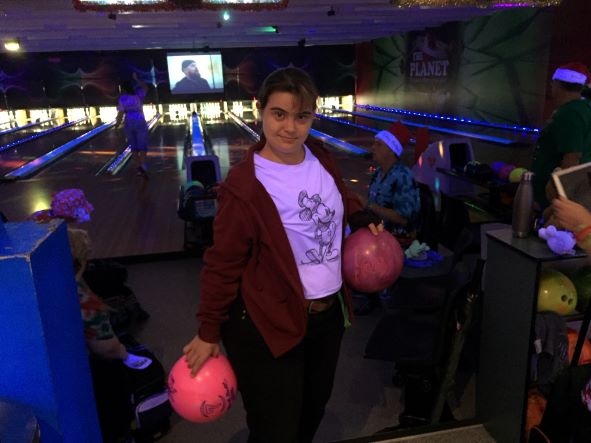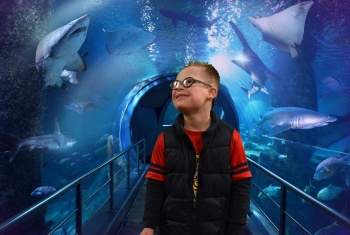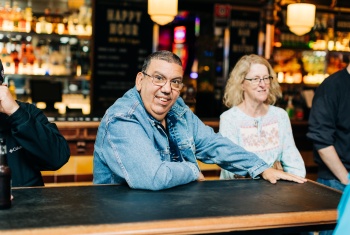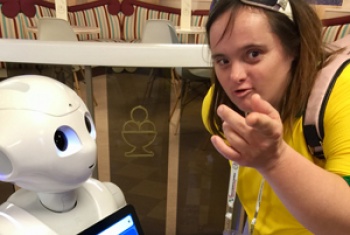“It’s more than just being a team and talking in our meetings, it’s helping people with disabilities and telling them about what’s inside them is in us too.” - Alishia Lindsay, NDIS participant
Darwin woman Alishia Lindsay admits she had a touch of stage fright when she presented to a group of Allied Health and Clinical Science students at Charles Darwin University.
But the spirited young disability advocate managed to stay on top of her nerves.
“I did have the giggles a bit,” says Alishia, who has Down syndrome. “But let’s say I was confident and, what’s that other word I was thinking of? It was on the tip of my tongue, I can’t quite find it. Enthusiastic! Yes, enthusiastic.”
Alishia, 25, is a Health Ambassador for Down Syndrome Australia (DSA) and also a National Disability Insurance Scheme (NDIS) participant.
She’s one of 10 self-advocates with Down syndrome nation-wide employed by DSA to educate health professionals on how to better communicate with and include people with Down syndrome in their health conversations.
The Inclusive Communication project is aimed at improving health outcomes and is supported by a Federal Government-funded program.
With presentations like the one Alishia made last year, she hopes to help others, especially health professionals, better understand, include and communicate with people with Down syndrome, while also improving her own public speaking skills.
“Yes, I did enjoy it, indeed I did,” she says. “There were a lot of questions. We talked about the NDIS, about Carpentaria, about Down syndrome.
“It’s more than just being a team and talking in our meetings, it’s helping people with disabilities and telling them about what’s inside them is in us too.”
Alishia’s communication skills and confidence have been growing since she started working in paid employment as a therapy aid assistant with the allied health team at Northern Territory NDIS provider Carpentaria about two years ago.
A highly valued team member, Alishia was the first person with disability employed by the provider through a supported employment program, funded through the NDIS.
She successfully landed the job after confidently chatting with a therapist during one of her own speech therapy sessions, explaining she was looking for work.
“They like my sense of humour,” Alishia says, beaming.
With the support of an NDIS-funded support worker three mornings a week, Alishia helps with stocktake, sanitation and preparing therapy resources, including laminating, creating visuals and communication boards, and making play-dough.
Alishia sometimes completes her work in the reception area and enjoys welcoming and interacting with participants and their families as they arrive for their therapy appointments.
“So, they’re actually meeting somebody with an intellectual disability who’s working, and it gives hope for those parents as well, so it has that broader community impact,” Alishia’s father Grant Lindsay says.
“Families can see that after the hard work, there is a light at the end of that tunnel.”
Alishia’s father says it’s thanks to Alishia’s NDIS support that she is meaningfully employed and so actively involved in her community.
“If Alishia was restricted to her disability pension, she would be doing a fraction of what she’s doing now, she’d likely be going out for only one social activity a week,” he says. “She also wouldn’t have that additional income with her work or the social interaction that brings.”
With NDIS support, including transport assistance, speech therapy, and support workers to access the community, Alishia is busy pursuing a host of other goals too.
She graduated with a Certificate 3 in retail last year and hopes to work at Carpentaria’s café in the future. She also takes part in several social, sport and art programs with NDIS provider Total Recreation.
A talented artis, Alishia hopes to sell some of her abstract drawings at local markets soon and has even bigger dreams long-term.
“I was thinking in the distant future, like in 20 years’ time, I was thinking of opening my own art museum,” she says.



